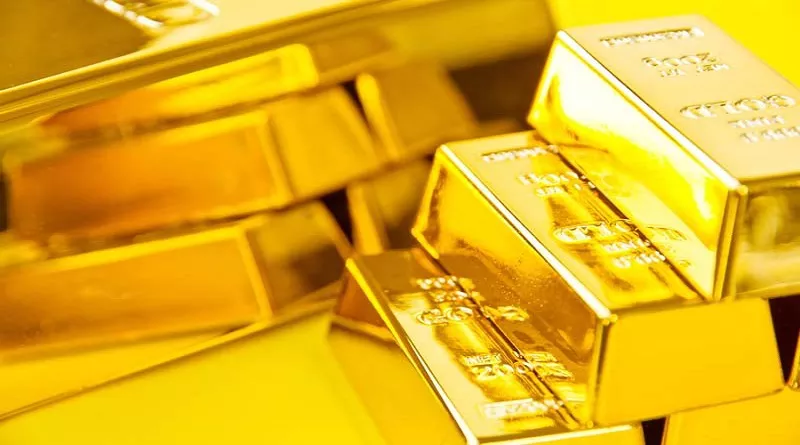In times of economic uncertainty and financial instability, investors often seek refuge in safe-haven assets to protect their wealth. Among these, gold has stood the test of time as a preferred choice due to its intrinsic value and historical resilience. One of the key debates within the financial community is whether gold’s value rises in the face of inflation. In this article, we delve into the complex relationship between gold and inflation, examining historical data, economic theories, and contemporary perspectives to understand whether gold serves as an effective hedge against inflation.
Understanding Inflation
Before delving into the correlation between gold and inflation, it is crucial to comprehend the nature of inflation. Inflation is the sustained increase in the general price level of goods and services in an economy over a period of time. It erodes the purchasing power of money, leading to a decrease in the value of currency. Central banks often use monetary policy tools to control inflation rates and maintain stable economic conditions.
Gold as a Store of Value
Gold has been revered for centuries for its durability, scarcity, and cultural significance. Its unique properties have made it a store of value across different civilizations and historical periods. Gold does not corrode, tarnish, or degrade over time, making it a reliable long-term asset. Its scarcity, as it cannot be easily produced in large quantities, adds to its allure. These characteristics have led many to view gold as a hedge against economic uncertainties, including inflation.
Historical Perspective
Looking back at history, gold has demonstrated a mixed relationship with inflation. During periods of high inflation, such as the 1970s, gold prices experienced substantial appreciation. The oil crisis and loose monetary policies fueled inflation, driving investors to seek refuge in gold as a safeguard against the eroding value of fiat currencies. Gold prices soared from around $35 per ounce in 1970 to over $800 per ounce in 1980, reflecting its perceived value during a period of rampant inflation.
However, the correlation between gold and inflation is not always straightforward. In other periods, gold prices remained relatively stagnant even in the face of inflationary pressures. The 1980s and 1990s, for example, saw moderate inflation but relatively stable gold prices. This suggests that other factors, such as interest rates, investor sentiment, and market dynamics, also play a significant role in influencing gold prices.
Economic Theories and Factors
Several economic theories attempt to explain the relationship between gold and inflation. One of the prevailing views is that gold serves as a hedge against inflation because its value is not tied to the performance of any specific economy or government. This inherent independence makes gold less susceptible to the devaluation of fiat currencies during inflationary periods. Investors seeking to preserve their wealth may allocate a portion of their portfolios to gold to mitigate the negative effects of inflation.
Another perspective, however, argues that gold’s performance during inflationary periods is influenced by real interest rates rather than just inflation rates. Real interest rates are nominal interest rates adjusted for inflation. When real interest rates are low or negative, gold becomes more attractive because it offers a yield-free investment that protects against the opportunity cost of holding assets with diminishing real value. Conversely, when real interest rates are high, non-yielding assets like gold may become less appealing, potentially affecting its price trajectory during inflationary periods.
Contemporary Considerations
In today’s interconnected global economy, the relationship between gold and inflation is influenced by a multitude of factors. These include geopolitical tensions, central bank policies, technological advancements, and shifts in investor sentiment. Modern financial instruments and investment vehicles provide alternative avenues for hedging against inflation, potentially affecting the demand for gold as a traditional safe haven.
Central bank policies, such as quantitative easing (QE) and low-interest-rate environments, have also introduced new dynamics into the gold-inflation relationship. While these policies are often implemented to counter economic downturns and stimulate growth, they can contribute to inflationary pressures. As a response, investors may turn to gold as a means to protect their assets from the devaluation of fiat currencies.
Conclusion
The question of whether gold appreciates in times of inflation is a complex and nuanced issue that cannot be definitively answered with a simple yes or no. Historical data suggests that gold has demonstrated the capacity to act as a hedge against inflation during certain periods, while its performance during other times has been influenced by a range of factors beyond inflation rates alone.
Gold’s enduring status as a store of value and its historical role as a safe haven asset continue to make it an appealing choice for investors seeking protection from economic uncertainties, including inflation. However, the modern financial landscape, characterized by evolving investment options and intricate market dynamics, has introduced new variables that can impact the traditional relationship between gold and inflation.
Investors considering gold as a potential hedge against inflation should carefully evaluate the prevailing economic conditions, monetary policies, interest rates, and broader market trends. Diversification, thorough research, and a clear understanding of one’s investment goals remain essential when making decisions about including gold in a portfolio aimed at mitigating the effects of inflation.


